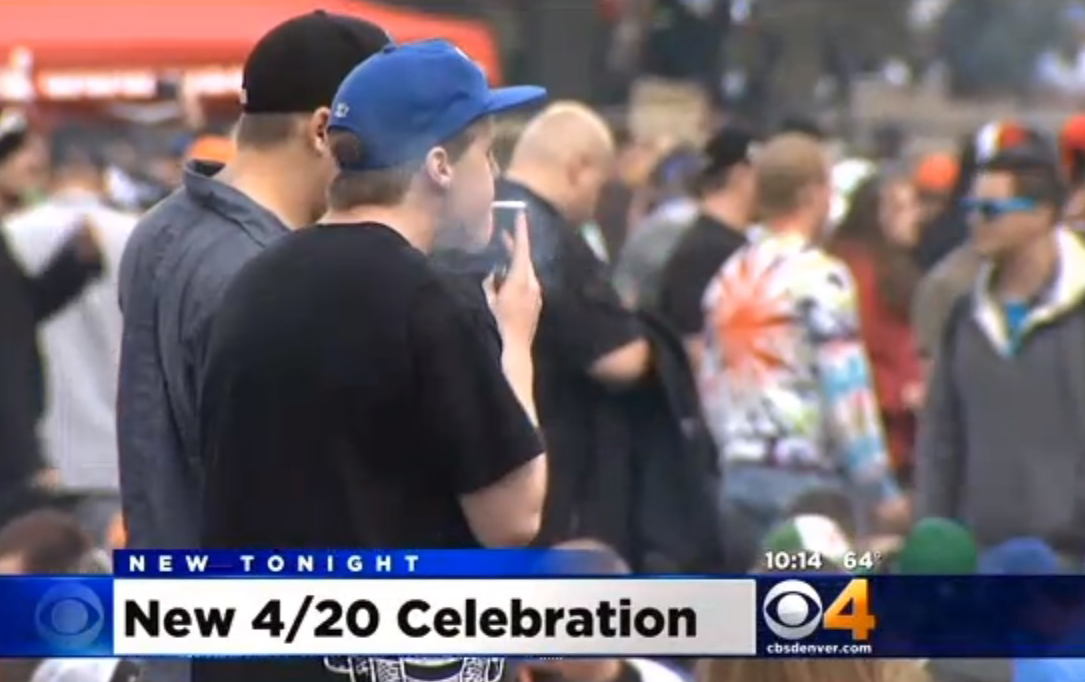
PUEBLO, Colo. (BP) — One Colorado “church” is pushing for its mountain town of 1,500 to become the nation’s first “sanctuary” for “therapeutic and spiritual users of cannabis.”
 Calling itself “Closer to the Heart Ministry,” the so-called church in Nederland, Colo., celebrates cannabis — the plant that produces marijuana — as mankind’s “tree of life.”
Calling itself “Closer to the Heart Ministry,” the so-called church in Nederland, Colo., celebrates cannabis — the plant that produces marijuana — as mankind’s “tree of life.”
Baptist pastors in Colorado, however, see no safe haven from recreational marijuana’s toll since its legalization on Jan. 1, 2014.
Charlie Jones, pastor of Fellowship of the Rockies in Pueblo, said legalization has spawned a heightened demand for social services in southern Colorado, including an 81 percent rise in marijuana-related calls to emergency response dispatchers in 2014.
“People have moved to Colorado because of the legalization of marijuana, and then they have stressed the food pantries and homeless shelters and things like that,” Jones said.
Twenty-four retail stores opened on the first day of legal recreational marijuana in Colorado in 2014; today, the state is home to more than 330 such stores.
Pueblo County, with a population of just over 162,000, has issued 41 marijuana retail licenses, with outlets garnering more than $44,600 daily, according to the Pueblo Chieftain.
Colorado’s embrace of recreational marijuana comes as science continues to produce information about its detrimental effects. Besides the short-term mood-altering characteristics, long-term effects include stunted brain development.
With marijuana’s potency much higher than in the 1960s, long-term use starting in adolescence results in an eight-point drop in IQ on average through a person’s late 30s, according to the National Institute on Drug Abuse.
Accessibility to marijuana in Colorado has created challenges that often land at the doorstep of local churches and ministry centers. Most of those challenges result from miscalculated consequences, beginning with tax revenue shortfalls.
During the first fiscal year of legalization, Colorado estimated it would garner $118 million in retail marijuana tax revenue. The receipts were closer to $36.2 million.
Taxes on legal marijuana make the retail price high, which has fueled black market sales. Proponents had predicted the black market would shrink. The Pueblo Chieftain reported in a recent series on legalization’s implications that cartels are now operating in Colorado.
Though possession of an ounce or less of marijuana is now legal in Colorado, the state Supreme Court recently determined that employers could set stipulations related to drug use. Most have a zero tolerance policy, meaning that any trace of marijuana, which can last from four to nearly 70 days depending on usage, can disqualify a person for a job. Jobless people often become homeless.
Numerous other questions have emerged including whether food stamps cover marijuana-laced edibles (retailers sold more than 4.8 million units for recreational use in 2014) and how to keep those food products from children and youth.
“In church we’re seeing more that we are strangers, exiles and aliens,” said Michael Morgan, 37, pastor of Wellspring Community Church in the Denver suburb of Aurora.
“We’ve seen it move from a hobby for people to something that they do all day long. It begins to infiltrate all of life. It becomes more addictive. I never see people quit,” Morgan said.
With legalization of marijuana implying a moral legitimacy to its use, churches that have small groups gathering in homes must now spell out expectations.
“If churches have life groups in homes, they have to say they don’t want alcohol or marijuana served,” Jones, 55, said. “Churches have to cover that with host homes. Even though it is legal, that is not acceptable for us.”
Jones has encouraged church members to be responsible in their decision-making about recreational marijuana.
“Scripture talks about the difference between a good decision and a best decision,” Jones said. “There’s a difference between a permissible decision and a responsible decision.”
Some people have irresponsibly come to church high on marijuana. Fellowship of the Rockies faced a security issue when a first-time visitor came to church under its influence.
The permissive attitude in Colorado toward marijuana also has changed hiring practices at churches.
“When we hire, we have to have all of those conversations,” Jones said. “We ask about positions on alcohol and marijuana, how you would counsel [people]. It has complicated everything.”
Yet complications from recreational marijuana may also stir a new focus within the church.
“We’re not the moral majority, but we’re the missional minority,” Morgan said. “The mission has never been about pot or curbing any other immorality.
“The mission is to exalt and glorify Jesus and help others come into a relationship with Jesus and be transformed by the power of the Gospel,” he said.










